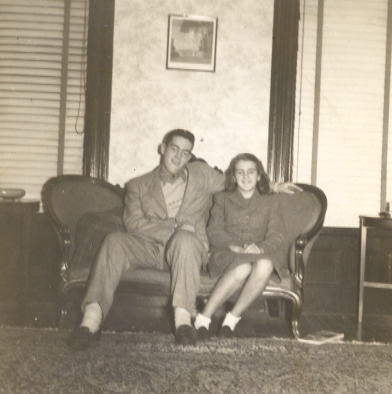
Breslin as a young man with his sister Diedre.
Jimmy Breslin (b. 1928) is a Pulitzer Prize–winning journalist who has, for more than fifty years, been among the most prominent columnists in the United States. Known for his straightforward reporting style that relates major news to the common man, Breslin has published more than a dozen books of fiction and nonfiction, in addition to writing columns for newspapers such as the New York Daily News and Newsday.
Born in Queens, New York, Breslin began his long newsroom career in the 1940s, lying about his age to get a job as a copyboy at the Long Island Press. He got his first column in 1963, at the New York Herald Tribune, where he won national attention by covering John F. Kennedy’s assassination from the emergency room in the Dallas Hospital and, later, from the point of view of the President’s gravedigger at Arlington Cemetery. He also provided significant coverage of the civil rights turmoil raging in the South, and was an early opponent of the Vietnam War.
In 1969, Breslin ran for city council president on Norman Mailer’s mayoral ticket. The two campaigned on a platform arguing for statehood for New York City and for banning private cars in Manhattan, among other issues. Breslin placed fifth in the primary election, garnering eleven percent of the vote. He later quipped that he was “mortified to have taken part in a process that required bars to be closed,” referring to a law in place at the time that prohibited the sale of liquor on election days.
In the early 1970s, Breslin retired from newspaper journalism to write books, beginning with The Gang Who Couldn’t Shoot Straight (1970), a national bestseller that was adapted into a 1971 film starring Robert De Niro and Jerry Orbach. By this time Breslin had also published Sunny Jim (1962), about legendary racehorse trainer Jim Fitzsimmons, and Can’t Anybody Here Play This Game? (1963), about the disastrous first season of the New York Mets baseball team. He also wrote How the Good Guys Finally Won (1976), about the Watergate Scandal and Nixon’s subsequent impeachment, a prevalent topic for him in the early 1970s.
Breslin returned to column-writing later in the decade, taking jobs first at the New York Daily News, then at Newsday. As always, he covered the city by focusing on ordinary people as well as larger-than-life personalities. His intimate knowledge of cops, Mafia dons, and petty thieves provided fodder for his columns. In the late 1970s, his profile was so high that Son of Sam killer David Berkowitz sent him letters, to boast about and publicize his crimes.
Known for being one of the best-informed journalists in the city, Breslin’s years of insightful reporting won him a Pulitzer Prize in 1986, awarded for “columns which consistently champion ordinary citizens.” Among the work cited when he received the Pulitzer were his early columns on the victims of AIDS and his exposé on the stun-gun torture of a suspected drug dealer by police in Queens. Although he stopped writing his weekly column for Newsday in 2004, Breslin has continued writing books, having produced nearly two dozen to date. These include collections of his best columns titled The World of Jimmy Breslin (1969) and The World According to Jimmy Breslin (1988). He lives in Manhattan and continues to write.

Breslin as a young man with his sister Diedre.
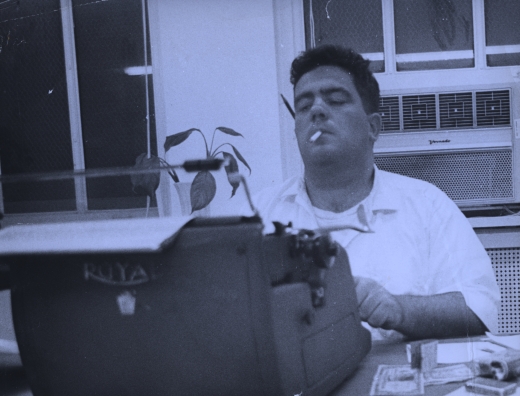
Breslin writing at home in Forest Hills, Queens.
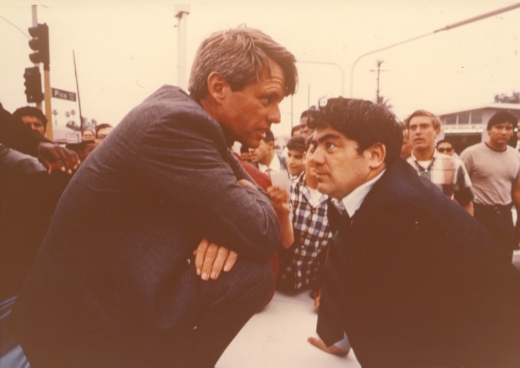
Breslin chats with Robert F. Kennedy, who was campaigning in Los Angeles during the 1968 presidential race.
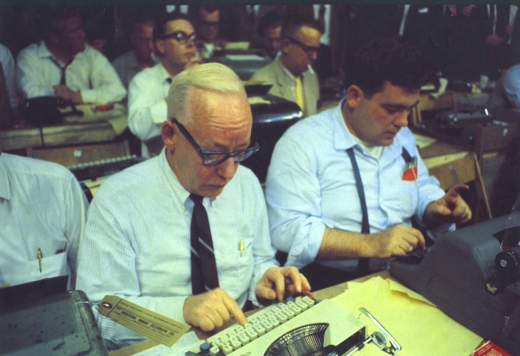
Breslin (right) and columnist Red Smith both writing for the New York Herald Tribune during the Democratic Convention in Chicago in 1968.
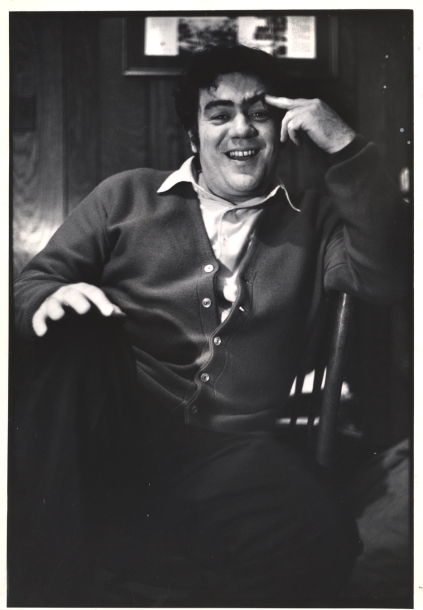
Breslin in Ireland in 1971, while writing World Without End, Amen.

Breslin with Bella Abzug, a New York congresswoman and social activist.
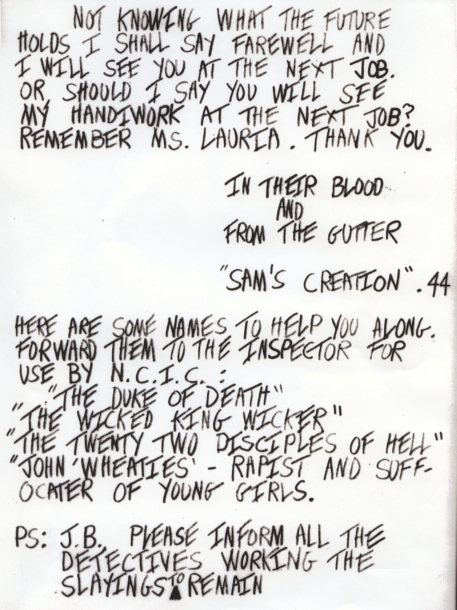
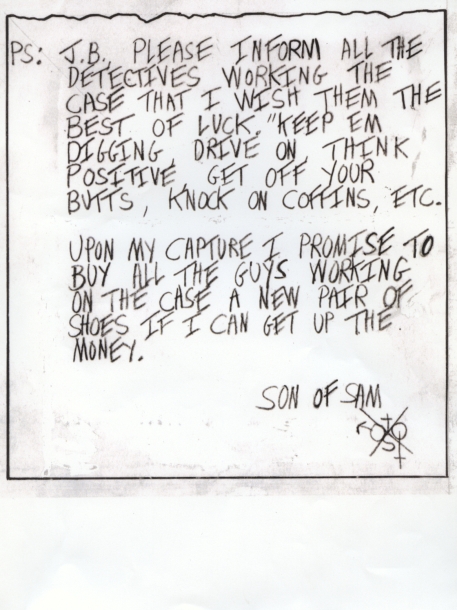
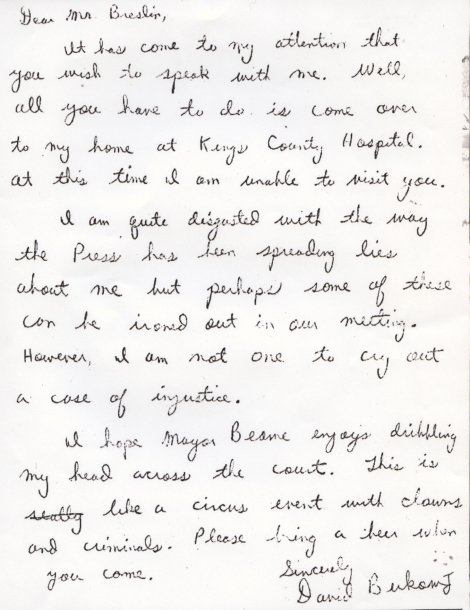
Letters from David Berkowitz, a.k.a. Son of Sam, delivered to Breslin at the New York Daily News offices. Son of Sam sent letters to Breslin during his killing spree in New York City in the summer of 1977. These letters were later used in the Spike Lee film Summer of Sam (2008).
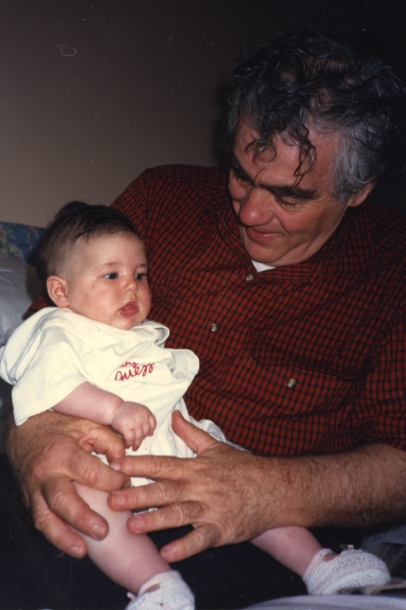
Breslin with grandson Dillon Breslin in June 1980.
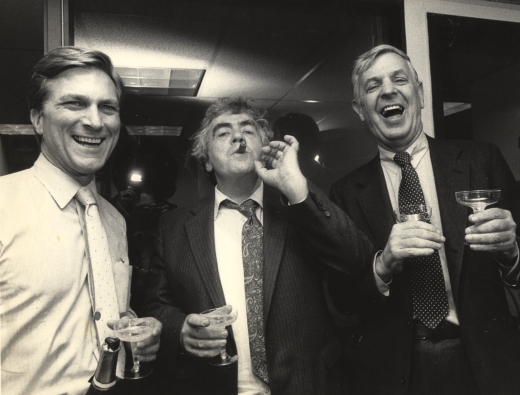
Breslin in the New York Daily News offices with publisher Jim Hogue (left) and editor Gil Spencer (right) after the announcement of the Pulitzer Prize for Commentary in 1986.

Breslin (far left) with the crew of his television show, Jimmy Breslin’s People, and Speaker of the House of Representatives Tip O'Neill (fourth from right) in 1986.

The Breslin family in 1989.

Breslin with columnists David Anderson (left) and Murray Kempton (right) at a book party for Damon Runyon: A Life in New York City, 1991.